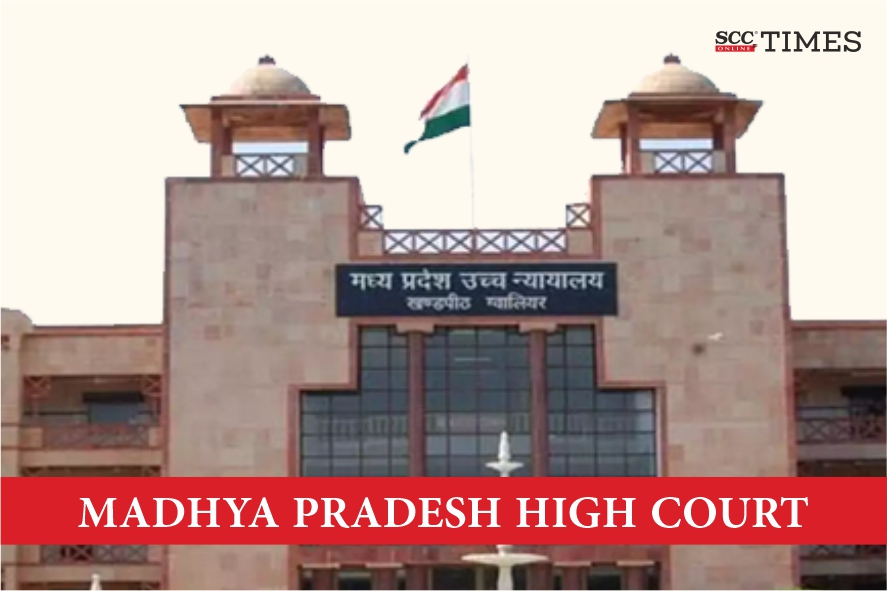Madhya Pradesh High Court: In a first application for bail filed under Section 483 of the Bharatiya Nagarik Suraksha Sanhita, 2023[1], a single-judge bench of Prakash Chandra Gupta, J., granted bail to the applicant, considering the procedural lapses and insufficient evidence to establish prima facie guilt.
In the instant matter, an FIR was registered at P.S. Morar, Gwalior, on 16.06.2023, accusing the applicant and others of fraudulent activities involving import authorizations for poppy seeds using benami entities, violating licensing provisions, and causing a loss to the government exchequer. The applicant allegedly circumvented import regulations by creating benami firms controlled by him. The proceeds of crime valued at ₹141.8 crore were generated through fraudulent imports.
The Enforcement Directorate (ED) initiated proceedings under the Prevention of Money Laundering Act, 2002 (PMLA) after recording the FIR. The applicant was arrested based on statements of co-accused persons.
The appellant contended that the ED failed to adhere to Sections 19 and 50 of PMLA before arresting the applicant. It was contended that the reasons for arrest were based on co-accused statements, which are inadmissible as evidence. It was contended that no material evidence was collected linking the applicant to money laundering. It was also stated that the licensing authority was not consulted by the ED. It was further argued that the ED did not seek custodial interrogation or submit evidence justifying continued detention.
However, the ED contended that the applicant was directly involved in money laundering, with proceeds of crime amounting to ₹141.8 crores. The ED admitted lack of summoning or custodial interrogation prior to arrest but argued that evidence from co-accused statements established prima facie guilt.
The Court cited Prem Prakash v. Union of India, 2024 SCC Online SC 2270, where it was held that statements made in custody to the same agency are inadmissible, Pushpendra Singh v. Directorate of Enforcement,[2] where it was held that arrest must be backed by written reasons of belief under Section 19 of PMLA and reasons for belief in guilt must be documented, Pankaj Bansal v. Union of India, 2023 SCC Online SC 1244, where it was held that statutory compliance is essential for arrest under Section 19 of PMLA and Arvind Kejriwal v. Directorate of Enforcement, 2024 SCC Online SC 1703, where it was held that guilt under PMLA must be established with admissible evidence.
The Court stated that in case of non-compliance of Section 19 of the PMLA, the court shall examine the material and resources whereby the authorized officer has to give reason to belief the guilt of accused and the court has to give reason to belief of not guilty of offence i.e. reason to belief becomes a sine-qua-non.
The Court stated that when an accused is in custody under PMLA irrespective of the case for which he is under custody, any statement under section 50 of PMLA to the same investigating agency is inadmissible against the maker. The Court asserted that “the arrest should be rational, fair and as per law and shall not be merely based upon guilt of accused established from inadmissible evidence. Additionally, forming of opinion of the designated officer of the guilt of accused in writing is must.”
The Court noted that, in the present case, no prior summons or statements recorded from the applicant and the applicant’s arrest was solely based on statements of co-accused, which are inadmissible. The Court stated that the statements recorded under Section 50 of PMLA during custody are inadmissible. The Court further stated that no information was called by ED from the licensing authority to show that the applicant adopted fraudulent practices in obtaining import license.
The Court relied on V. Senthil Balaji v. State, (2024) 3 SCC 51, where the Supreme Court held that in any non-compliance of the mandate under Section 19 of the PMLA, the same would ensure to benefit of the person arrested. The Court held that procedural non-compliance under Section 19 of the PMLA and reliance on inadmissible evidence justified granting bail.
The Court directed the applicant to furnish a personal bond of ₹5,00,000 with two sureties of the like amount and mandated the compliance with Section 480(3) of Bharatiya Nagarik Suraksha Sanhita, 2023, including cooperation with the investigation.
[Asif Hanif Thara v. Enforcement Directorate, 2024 SCC OnLine MP 7379, Decided on 19-11-2024]
Advocates who appeared in this case :
Shri Sidhharth Agrawal, Senior Advocate with Shri Manu Maheshwari, Ms. Smriti Sinha, Ms. Radhika Subhash, Ms. Arshiya Ghose and Shri Ritesh Kumar Sharma, Counsel for the Applicant
Shri Himanshu Joshi, Deputy Solicitor General and Shri Dilip Singh Shaktawat, Asst. Directorate, Counsel for the Respondent
[1] Section 439 of the Criminal Procedure Code, 1973.
[2] MCRC 19929/ 2024, order dated 08-07-2024.







Sometimes it strikes my mind that the process of arrest and jail are reminiscent of the fact that we might have evolved in other aspects, we might have trodden the surface of the moon, but in terms of addressing crimes and it’s solutions we are still in the middle Ages. Why arrest and jail unless the crime is proved. If the arrested person is proved innocent then who would compensate for the scars on his mind acquired during unjustified imprisonment. So in these ages of science when the location of any person is easily traceable with the help of different devices, why put one in a jail unless the person is a barbarian by habit and nature. Something in this regard is to be done.